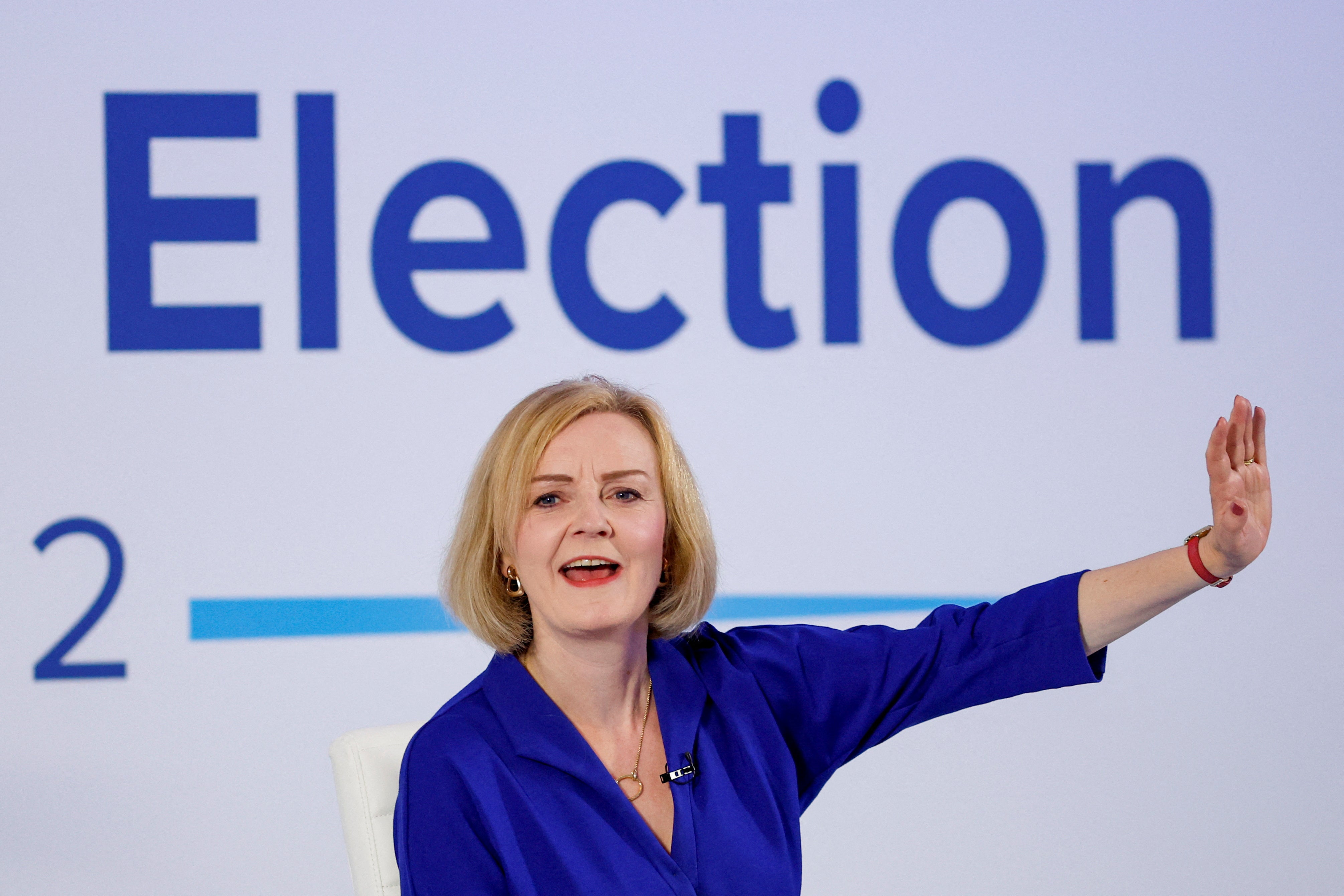You may be wondering how the energy price cap will affect Liz Truss
Truss’s honeymoon may be shorter than a new PM usually gets, writes Andrew Grice


The energy regulator Ofgem’s announcement that the domestic price cap will rise by 80 per cent in October, taking a typical bill to £3,549 a year, puts Liz Truss under intense pressure to say more about how she would help struggling families.
Truss has promised vaguely that “support is on its way”. She has quietly dropped her opposition to “handouts”, which pandered to her immediate audience – Tory members who still like the old, out-of-date tunes about “benefit scroungers” – but played badly in the real world.
If, as everyone in Westminster expects, the foreign secretary becomes prime minister on 6 September, she intends to unveil her package in an emergency Budget within two weeks. Her allies insist it would not be right for Truss to announce her plans before she has been elected or seen all the facts. Strange: her newfound caution has not so far stopped her from announcing tax cuts and other pledges costing up to £50bn during the leadership contest.
Truss may be forced at least to hint what she would do before then, to fill the dangerous vacuum left by the zombie government, which didn’t even bother to put up a minister for this morning’s TV and radio shows. So the anxiety of millions of people about how they will pay their energy bills will grow.
I wouldn’t be surprised if Truss filches the policy of her opponent, Rishi Sunak, by scrapping the 5 per cent VAT on domestic energy bills. But she won’t want to say that while Tory members are still voting; surprisingly, about half of those at last night’s hustings in Norwich said they hadn’t done so yet.
There is a growing sense in Tory circles that, as one senior figure told me, Truss has “only one shot to get it right” on the cost of living. If she doesn’t, her premiership could be in deep trouble from the start.
That is why she has rather cynically downgraded her emergency Budget – which initially sounded like a decisive response to the crisis – to a “fiscal event”. She does not want the Office for Budget Responsibility (OBR) watchdog to publish its usual Budget analysis on the same day, because any doubts about whether her tax-cutting strategy adds up would be likely to overshadow her announcement of help for households. Truss knows that after Sunak’s spring statement in March, the front pages were dominated by the OBR’s warning about the biggest-ever drop in living standards rather than his tax cuts.
Last night, Truss dismissed the matter of the OBR’s involvement as a “processology question” that is “not relevant” – but it matters. Since its creation by George Osborne in 2010, the OBR has provided a vital check on politicians whose self-interest is served by believing in the most optimistic economic forecasts. We can imagine which ones Truss would choose.
Some Tories think Truss would get a cold shower of reality on entering Downing Street, and would be unable to deliver all of the many promises she has made during the leadership contest. Something would have to give, and with the financial markets willing to tolerate only so much extra borrowing, that could mean a squeeze on public spending.
Of course, Truss wouldn’t shout “austerity” from the rooftops; she would probably try to muddle through until after the next general election. But Whitehall departments, already hit by inflation three times higher than the rate on which their budgets were based, would feel the pinch, and services would suffer.
Tory MPs worry that Truss would target help towards low-income groups but not those in the “squeezed middle” – a group once championed by Ed Miliband – who will also struggle to pay their bills. Those Theresa May called the “just about managing” (the JAMS) are not going to manage this winter without government help. Crucially, these are the swing voters who will decide the next election.
To keep up to speed with all the latest opinions and comment sign up to our free weekly Voices Dispatches newsletter by clicking here
Truss aides insist that people can trust her to deliver “energy affordability” for households and businesses, and long-term energy security for the country. But after Boris Johnson further eroded public trust in the political class, his successor will have to earn it back.
Truss’s honeymoon may be shorter than a new PM usually gets. I’m told that focus groups conducted this week by the Labour Party show that voters believe Truss would help the poor but not those in the middle. A typical comment was: “I am not poor, but I am going to struggle to pay my bills.” There was a wider suspicion that Truss is “not on my side” but is merely pretending to be.
Her leaked remarks about UK workers needing to show “more graft” are playing badly. The more people see of Truss, the less they like her; voters sense inconsistency and inauthenticity.
Ominously for her, some suspect that she is “trying to hide who she really is”. One person asked: “Will the real Liz Truss stand up?”
Soon she will have to, and she won’t be able to hide behind the easy platitudes that please Tory members but fail to satisfy the public. It will be a baptism of fire.






Join our commenting forum
Join thought-provoking conversations, follow other Independent readers and see their replies
Comments